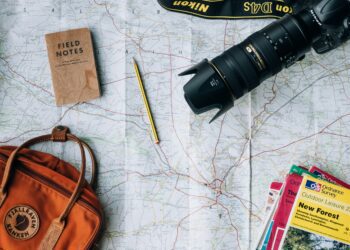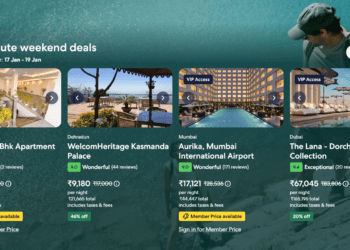When you think about travelling, what do you imagine? Maybe you see yourself jetting off to a foreign country for a week or two and exploring everything that the place has to offer. Maybe you see yourself taking long weekend trips to visit friends and family. Whatever your travel plans may be, there are certain things you should know before you go. In this blog post, we will explore five factors why travelling can be a headache. From dealing with customs to miscommunication, read on to learn about some of the realities of travelling and how to avoid them.
Planning Your Trip
1. Decide what you want to see and when.
2. Research the area you plan to visit.
3. Figure out how much money you will need and know the exchange rates for your destination.
4. Make a travel itinerary and map out each day of your trip.
5. Pack appropriately for the climate, terrain, and activities you will be engaging in (e.g., rain gear if visiting a rainforest).
6. Book your flights, hotel, and other accommodations well in advance (some destinations may have high demand).
7. Learn some basic Spanish or Portuguese so that you can communicate with locals during your trip.
8. Prepare yourself mentally and emotionally for a long journey by packing light, eating healthy foods, and taking plenty of breaks along the way!
Researching the Destination
Travelling is a great way to see new places and experience different cultures, but it can also be a headache. Here are some tips to help make your trip go smoother:
1. Research the destination. Know what you’re looking for before you leave home so that you can plan your itinerary efficiently.
2. Pack appropriately. Be sure to pack clothes that fit the climate and culture, as well as appropriate accessories (hat, sunglasses, sunscreen, etc.).
3. Make travel arrangements in advance. Book flights, hotels, and rental cars ahead of time to get the best deals and avoid last-minute surprises.
4. Organize your packing list accordingly. Make sure you have everything you need before packing up your suitcase; don’t forget to bring medications, passports, and stamps!
5. Confront any flight delays or cancellations with grace and good humour. They happen, but don’t let them ruin your trip! Try to find something enjoyable to do while waiting out the inconvenience.
Packing for Your Trip
1) Figure out what you need and don’t waste space packing things you won’t use.
2) Make a packing list and stick to it – if something is not on your list, chances are it doesn’t belong in your bag.
3) Pack light – the less weight you have to carry, the better.
4) Make sure all your belongings are organized and placed in easily accessible places.
5) Label everything so you know where it is at all times. This will make packing and unpacking a lot simpler.
6) Arrive prepared for whatever may come your way – be mentally prepared for any potential problems or challenges that arise on your trip.anoia when travelling can lead to headaches, as anxiety can cause tension headaches or migraines, which can make travelling very difficult indeed. However by following some simple tips outlined in this article, you can make travelling much more manageable and hassle-free, minimizing the chances of experiencing any headaches during your trip.:
i) Figure out what you need and don’t waste space packing things you won’t use: Packing too much gear only leads to trouble when trying to get through airport security or carrying everything around while touring a new city. Instead, prioritize what’s most important to you and pack lightly accordingly; just enough essentials so that everything is easy to access but nothing more.: ii) Make a packing list: This will help keep everything straight in your head while packing
Travelling with Children
When travelling with children, it is important to keep in mind a few key things. Firstly, make sure that your child is properly vaccinated, as many diseases can be spread easily through air travel. Secondly, pack plenty of snacks and drinks (and don’t forget the napkins!), as they will likely get hungry and thirsty while on the go. Finally, be prepared for hours spent on planes or buses – kids are generally very active and may not take well to sitting still for long periods of time.
Tips for a Stress-Free Trip
1. Do your research. Before you go, be sure to read up on the destination and what to expect during your trip. This will help alleviate any anxiety or uncertainty you may have about the experience.
2. Make a plan. When planning your trip, make sure to include specific dates and an itinerary of where you want to go. This will help keep you organized and on track while travelling.
3. Bring a travel journal. Keeping a journal of your trip can be very therapeutic and helpful in recalling all of the wonderful experiences and memories from your journey.
4. Bring copies of important documents such as your passport, driver’s licence, health insurance card, etc.. If something happens to these documents while you are away, having a copy handy will ensure that you are able to get back home safely and quickly.
5. Pack light and take plenty of breaks throughout the day/ night。Take frequent breaks both mentally and physically in order to avoid feeling overwhelmed or stressed out during your travels。This will also allow you to enjoy all of the amazing experiences that await you!





















